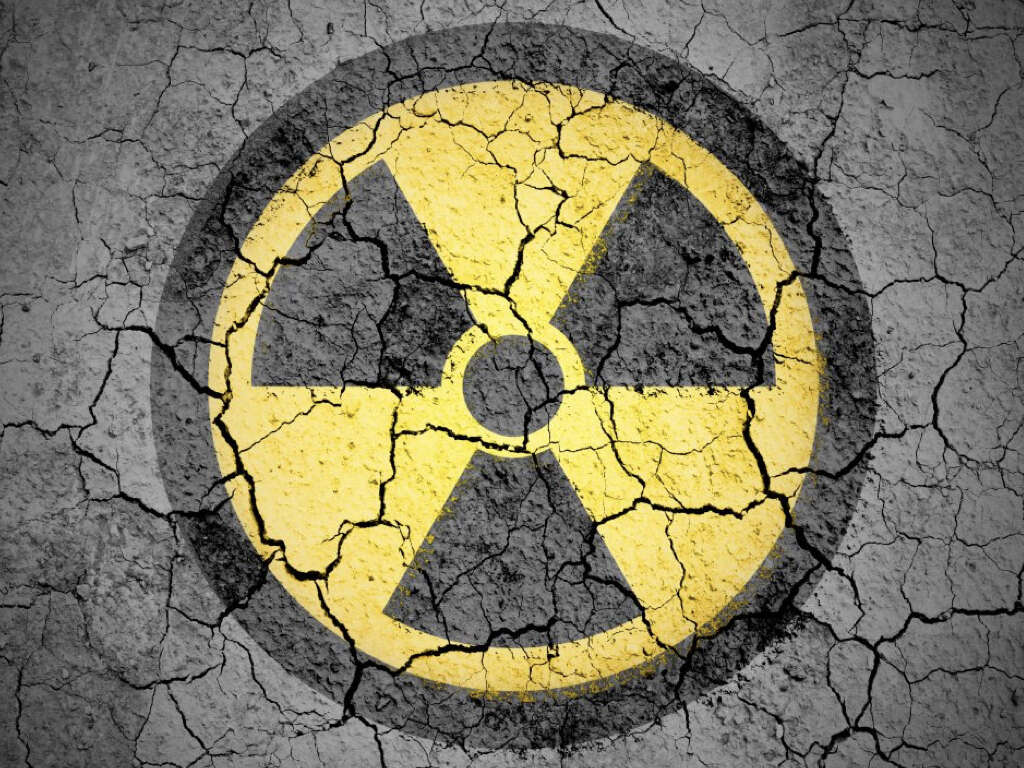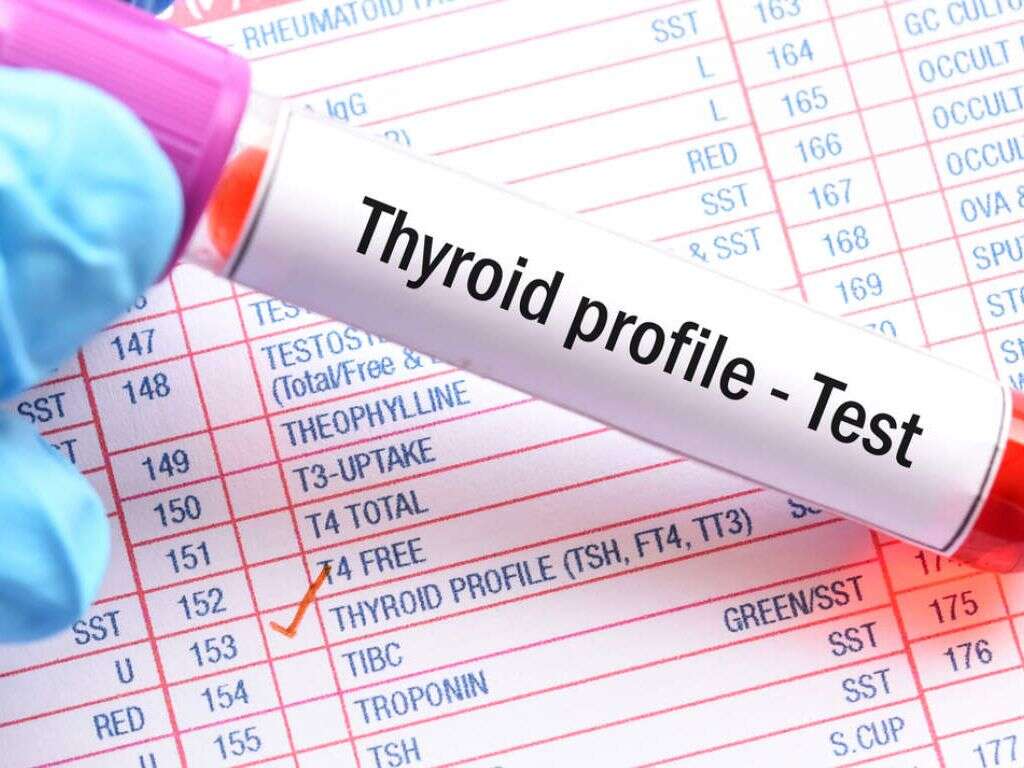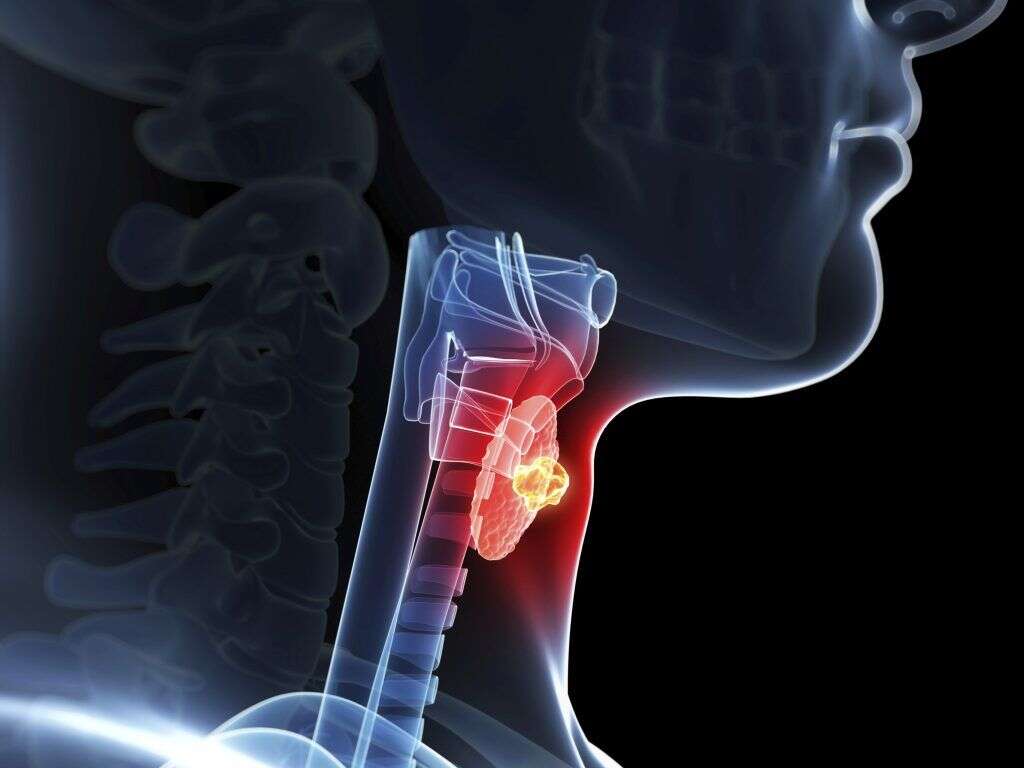10 Myxedema Symptoms
 Article Sources
Article Sources
- 1. 'Hypothyroidism (Underactive Thyroid).' Mayo Clinic, Mayo Foundation for Medical Education and Research, 19 Nov. 2020, www.mayoclinic.org/diseases-conditions/hypothyroidism/symptoms-causes/syc-20350284.[](https://www.mayoclinic.org/diseases-conditions/hypothyroidism/symptoms-causes/syc-20350284)
- 2. CR;, Wall. 'Myxedema Coma: Diagnosis and Treatment.' American Family Physician, U.S. National Library of Medicine, pubmed.ncbi.nlm.nih.gov/11130234/
- 3. Junuzović-Žunić, Lejla, et al. 'Voice Characteristics in Patients with Thyroid Disorders.' The Eurasian Journal of Medicine, The Eurasian Journal of Medicine, June 2019, www.ncbi.nlm.nih.gov/pmc/articles/PMC6592446/
- 4. S;, Tagoe CE;Zezon A;Khattri. 'Rheumatic Manifestations of Autoimmune Thyroid Disease: the Other Autoimmune Disease.' The Journal of Rheumatology, U.S. National Library of Medicine, pubmed.ncbi.nlm.nih.gov/22505695/
Myxedema is a complication of extended, untreated hypothyroidism, which is caused by the thyroid gland's failure to produce enough of the hormones the body needs.1‘Hypothyroidism (Underactive Thyroid).’ Mayo Clinic, Mayo Foundation for Medical Education and Research, 19 Nov. 2020, www.mayoclinic.org/diseases-conditions/hypothyroidism/symptoms-causes/syc-20350284. If thyroid problems continue without a diagnosis for long enough, they can pose a serious threat for the patient. However, not all thyroid issues result in myxedema, so being able to identify the symptoms is critical.
Patients with myxedema symptoms may be facing a severe health issue and should consult a qualified physician right away. Myxedema can be a life-threatening condition, and its symptoms can rapidly progress from troubling to extremely serious.
Unresponsiveness and Coma
One of the rarest but most serious symptoms of myxedema is unresponsiveness and coma. When this happens, patients have an advanced stage of myxedema that may be life-threatening. It's more common in elderly female patients, and they may begin to lose mobility prior to the coma.2CR;, Wall. ‘Myxedema Coma: Diagnosis and Treatment.’ American Family Physician, U.S. National Library of Medicine, pubmed.ncbi.nlm.nih.gov/11130234/ At the onset of the coma, the patient's responsiveness decreases until they are unresponsive.
Myxedema comas commonly have specific events beforehand that seem related to the coma. This event may be an infection or serious medical procedure. While the coma is rare, it most typically occurs in elderly women during the winter.
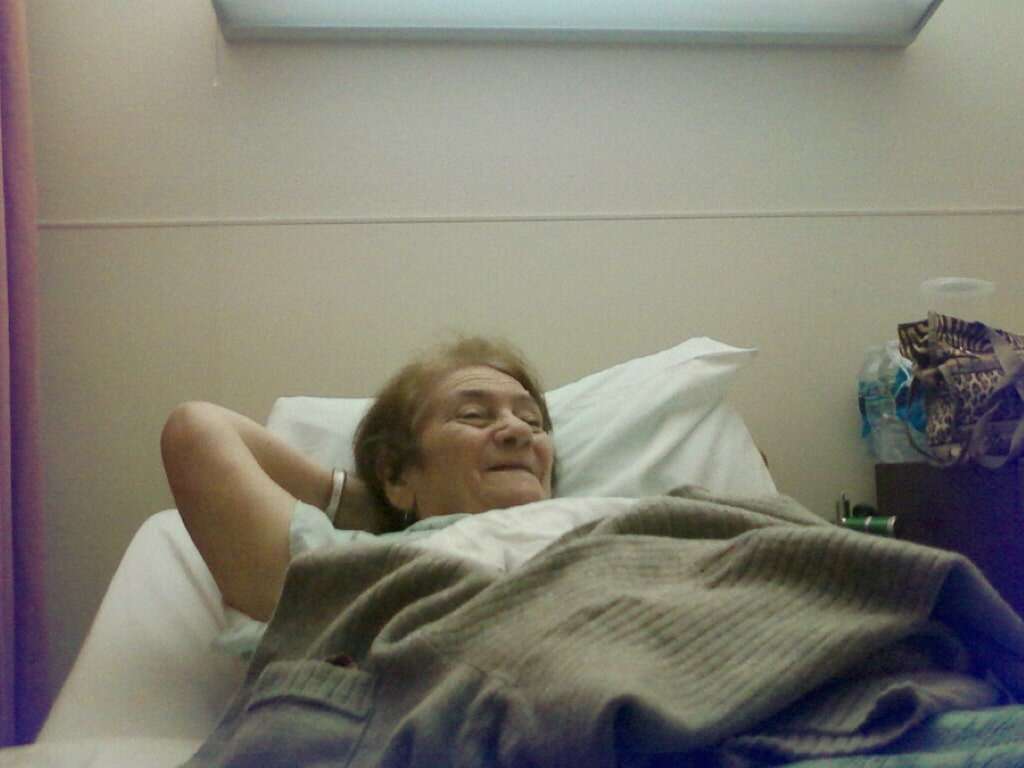
Intolerance of Cold and Hypothermia
Many myxedema symptoms are more advanced symptoms of hypothyroidism. This includes intolerance to cold, which is more exaggerated and more common in myxedema. This intolerance is typically driven by the drop in body temperature (hypothermia) that can occur in many myxedema cases.
Because the body is already colder than normal, patients are more sensitive to cold temperatures. Sensitivity to cold is not always a sign of myxedema, but in combination with other symptoms, it may be telling.

Changes in Facial Features
Physicians have identified a set of facial features that are common in people with myxedema. These include an enlarged tongue, puffy skin, drooping eyelids and dry skin and hair. Although it's a less exact diagnostic tool than some others, it's one way to catch warning signs at a glance.
While each of those facial features may have a number of causes, it's the combination of features that might tip off a trained physician. These features aren't always present, but they're certainly distinctive.

Physical Weakness
Some patients with myxedema feel physically weaker than they were previously, and they may have trouble doing tasks they've done many times before. It's a demoralizing condition and one that can pose a danger to patients if left unaddressed.
Because myxedema is more common in elderly patients, this symptom can be easily confused with other conditions that cause physical weakness. However, it can be an important diagnostic puzzle piece along with others.
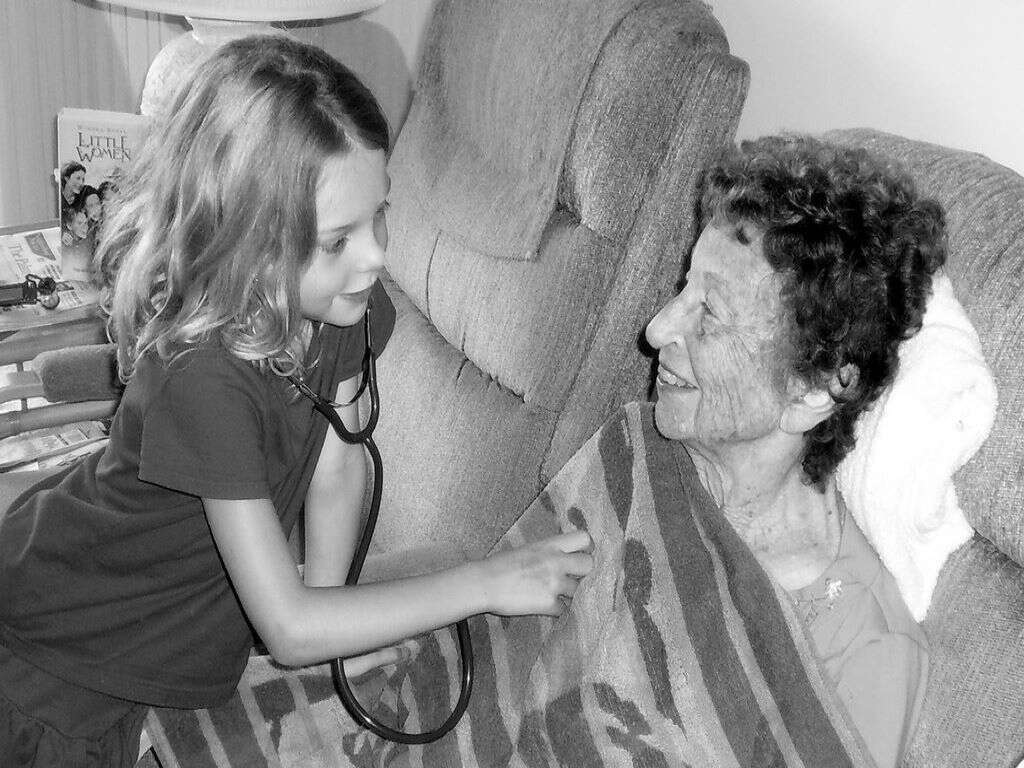
Mental and Physical Slowness
Not to be confused with weakness, mental and physical slowness prevents a person from doing something they are otherwise physically able to do. This may be identifiable from a simple conversation or if someone close to the patient notices a sudden drop in activity.
Like physical weakness, slowness can be confused with other symptoms in elderly patients. But it's important to note as it can quickly lead to a serious disruption in the patient's lifestyle.

Hoarse Voice
A hoarse voice is one of the more surprising and noticeable symptoms of myxedema. People are sometimes surprised to learn that a thyroid condition can affect the vocal cords, but the voice box is near the thyroid gland in the throat, and the two can affect one another drastically.3Junuzović-Žunić, Lejla, et al. ‘Voice Characteristics in Patients with Thyroid Disorders.’ The Eurasian Journal of Medicine, The Eurasian Journal of Medicine, June 2019, www.ncbi.nlm.nih.gov/pmc/articles/PMC6592446/
A sudden change in someone's voice might be passed off as a cough or a cold. But if the issue persists, it can be a fast way to diagnose myxedema, a much more serious condition.

High Blood Pressure
Like many conditions, myxedema causes the body to work much harder than it had before. The increased stress on the body means that, among other things, the patient's blood pressure increases. Because blood pressure tests are common and even possible to do at home, this is one of the fastest ways to tell that something serious is going on.
Unlike some of the other symptoms, high blood pressure is a significant problem itself. It should be tracked carefully before it becomes even more serious.

Weight Gain
One of the most common symptoms of thyroid problems is weight gain. The thyroid affects hormones that can cause drastic and unexplained increases in a patient's weight. Fortunately, physicians can recognize this common sign, and bringing it to a doctor's attention can result in swift action.
Like other symptoms, weight gain is a sign of hypothyroidism that can become more drastic with myxedema. Rapid diagnosis can prevent some of these symptoms, so patients should consult a doctor if they notice dramatic weight changes.

Joint Pain and Swelling
Thyroid issues commonly affect body tissue like the vocal cords, so they can also harm a patient's joints. Patients with myxedema sometimes have trouble moving, not due to weakness or slowness but because their imbalanced hormones have caused their joints to swell and hurt.
While these joint issues might be dismissed as arthritis, research suggests a link between many forms of arthritis and thyroid issues.4S;, Tagoe CE;Zezon A;Khattri. ‘Rheumatic Manifestations of Autoimmune Thyroid Disease: the Other Autoimmune Disease.’ The Journal of Rheumatology, U.S. National Library of Medicine, pubmed.ncbi.nlm.nih.gov/22505695/ Rather than dismiss a myxedema possibility, patients should talk to a doctor.
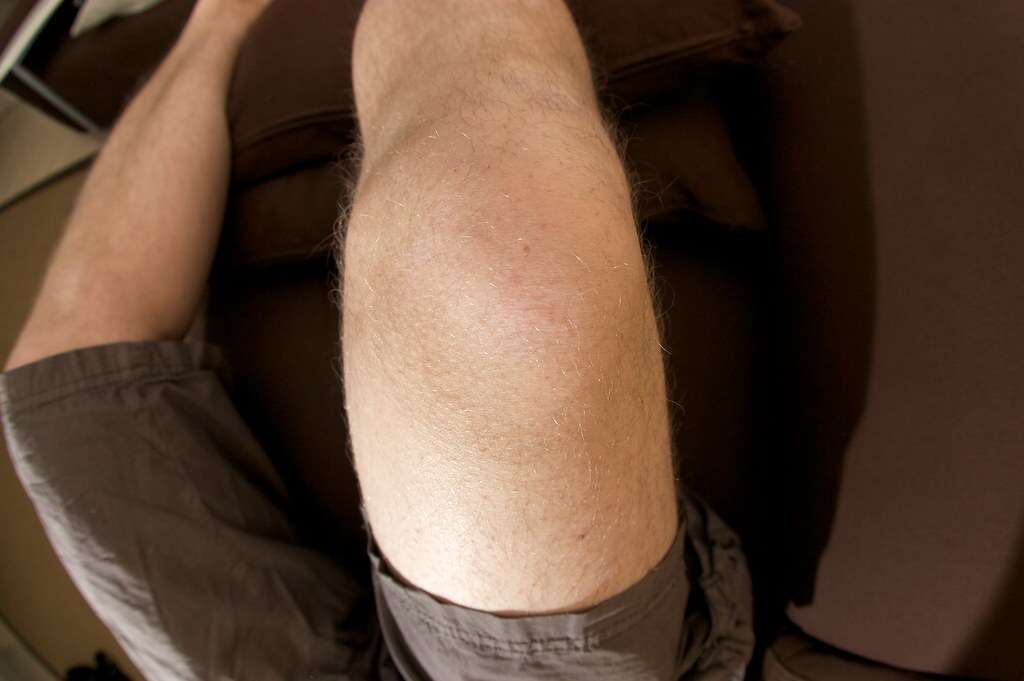
Thinning Hair
While it's less threatening than other symptoms, many patients are quick to notice thinning hair and loss of the outer thirds of the eyebrows. The hormonal imbalance that thyroid issues create can make hair fall out more rapidly than before.
Patients should track sudden changes in thinning hair, not the continuation of a steady trend over time. It can be tricky to diagnose symptoms that are natural results of aging, so it's important to be careful in noting when and how much a symptom changes over time.




